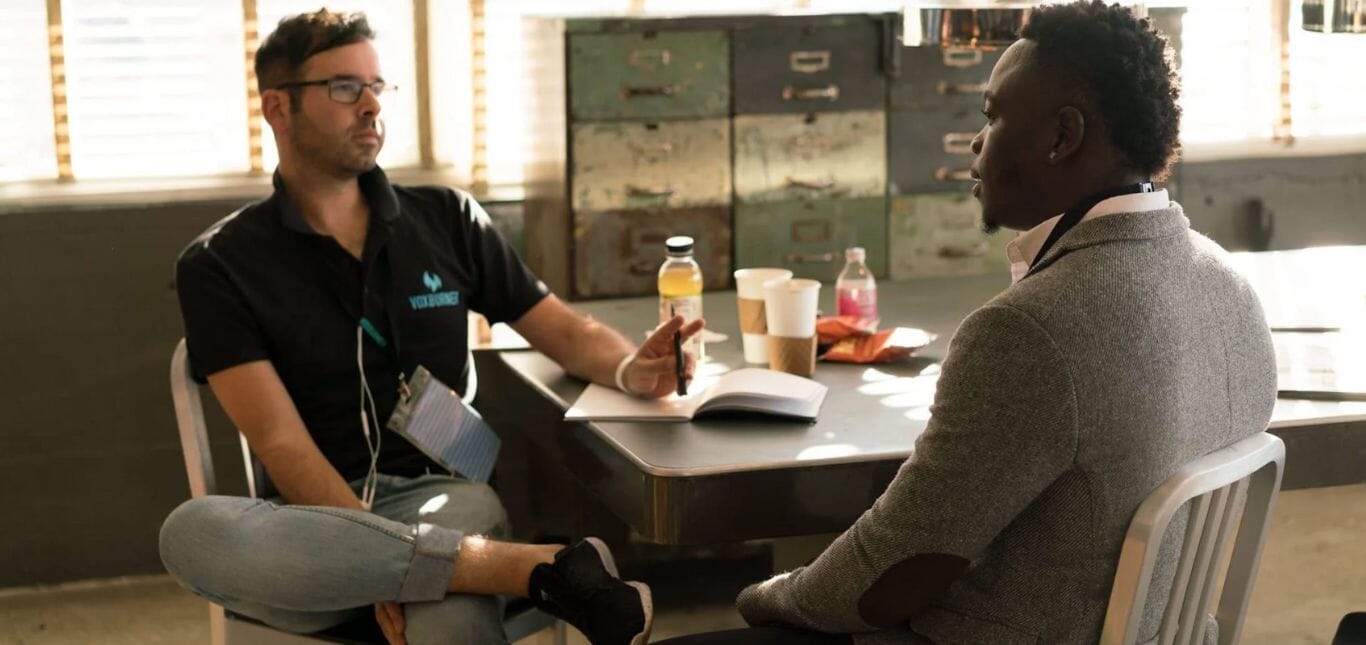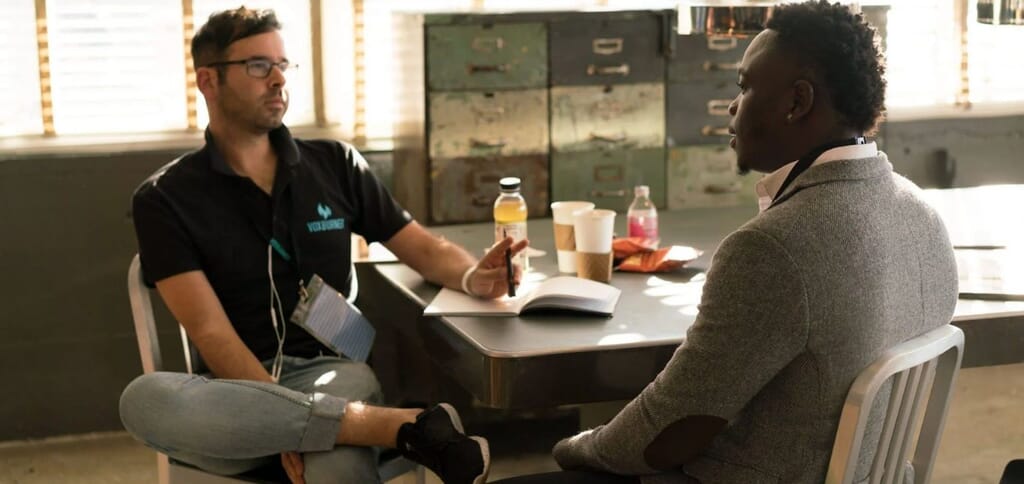Call: 01242 505 400 Or Email us

Client Advice
How to interview candidates remotely

The way companies conduct job interviews has transformed dramatically in recent years, with the rise of remote work and the use of technology to facilitate hiring processes. Remote interviews have become the new norm, offering benefits for both employers and candidates.
The benefits of interviewing candidates remotely
One of the most obvious benefits in conducting remote interviews is the potential to open up job opportunities beyond geographic boundaries. It allows employers to tap into a global talent pool and candidates to explore positions that are further afield.
Interviewing candidates remotely also helps to cut down the time employers spend on the recruitment process.Whether it’s an initial interview or a final stage interview, remote interviews can help an employer to instantly see if a person might be a good fit for the company or not.
But for the process to be truly beneficial, remote interviews need to be conducted in the right way. Here are our tips on how to interview candidates remotely so you can quickly and conveniently find the right candidate to fill your vacancy.
How to interview candidates remotely
1. Prepare and Test Your Technology
Before the interview, ensure your technology is up to the task. This includes having a stable internet connection, a reliable video conferencing platform, and any relevant interview software.
Conduct a test run with a colleague to check for audio and video quality. Familiarise yourself with the platform’s features to prevent any technical hiccups during the interview.
2. Establish a Professional Environment
Just as you would expect the candidate to have a quiet and professional setting, make sure you do too. Ensure the room is clutter-free and well-lit, free from other employees and distractions.
Choose a neutral or professional background. You are representing your company’s brand and your interview set-up should reflect this.
3. Set Clear Expectations
Clearly communicate the format of the interview in advance. Inform the candidate about the technology you’ll be using, the duration of the interview, and any additional assessments or tasks.
Provide a schedule so candidates know what to expect, and allocate time for their questions.
4. Prepare Questions and Assessment Criteria
Develop a structured list of questions that are relevant to the role and company culture. Ensure these questions assess both technical and soft skills.
Create a set of criteria to evaluate candidates consistently. This will help you compare candidates objectively and make more informed decisions.
5. Use Video to Your Advantage
Video interviews allow you to gauge a candidate’s body language, expressions, and non-verbal cues. While not perfect, it does give you some insight into their demeanour and character.
Try to maintain some eye contact by looking at the camera rather than the candidate’s video feed. This creates a more engaging and personable interview experience.
6. Engage and Build Rapport
Remote interviews can sometimes feel a bit daunting and impersonal. To counter this, start the interview with a warm greeting and a brief introduction of yourself, the company and the job role to make the candidate feel comfortable.
Listen actively, show empathy, and be responsive to the candidate’s cues. Building rapport is crucial for an effective interview and even though you may need to work harder, it is still possible to build rapport remotely.
7. Establish good online interview etiquette
When conducting face-to-face interviews, it is normal for the conversation to flow two or more ways, as people interject and bounce ideas off each other. In a remote interview, these interjections can feel like interruptions, so you will need to use other techniques to keep the conversation flowing.
Ask questions to ascertain whether a candidate has finished what they need to say, and avoid interrupting candidates as they are speaking.
8. Discuss the follow-up procedure
After the interview, let the candidate know the next steps. Give them an idea about when they are likely to hear from you and whether they need to send in any more documentation to support their application.
If it’s appropriate, you could also offer feedback on the interview. Whether you expect to hire them or not, constructive criticism shows professionalism and respect for their efforts.
Need more help on how to interview candidates remotely?
Conducting a candidate interview remotely is becoming a normal part of the recruitment process and we are seeing a lot more of it happening at RE Recruitment. However, a remote interview is not the same as a face-to-face interview. If you follow these tips then you’ll get the most out of your remote interview and potentially recruit some talented candidates into your company. You can discover more Video Interviewing Best Practice for Client techniques in our blog or speak to one of our recruiters for more help and advice.




